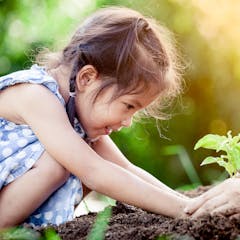
Articles on Families
Displaying 41 - 60 of 186 articles

Sharing administrative tasks and reminiscing on family moments can bring siblings together during tough times.

Family routines can provide stability during times of stress. Here are four strategies for building resilience against stress and family challenges to put into place as children head back to school.

Researchers have long differed on whether growing up with a sister or brother influences who we become as adults. New research using big data aims to finally settle the argument.

This change comes after centuries of discrimination against illegitimacy.

Access to instruments and instruction, along with encouragement at home and at school during childhood and early adulthood, can make gaining musical experience possible.

Being a parent can be tricky, and many turn to parenting guides for help in figuring out what to do. Two human development scholars have tips for picking a book that will be useful for you.

Making room for the input of children and adolescents in responses to the next pandemic would help maintain their health, education, well-being and more.

Children and their families can learn and find joy through digital games.

In a process called ‘reverse socialisation’, children can help their elders become more green - but eco education is key.

Restricting abortion access has negative effects on parents, as well as children and families, including increased poverty, unemployment, pregnancy-related deaths and higher health risks in children.

Communicating your intentions and expectations during your lifetime is key.

When states reduce barriers for low-income children to get coverage, their mothers are more likely to be married and less likely to smoke.

The federal government introduced the current childcare subsidy and activity test in 2018. An evaluation of the policy has found it met some of its intended objectives but failed at others.

The Mitchell Institute mapped childcare availability across the country and found regions where demand rarely met the supply. They also looked at cost and workforce participation for women.

Rage is a part of human motherhood, sandwiched between grief and shame. But it can be harnessed to build a better world.

A contrast to the bumbling and immature fathers commonly found on sitcoms, Bob Saget’s character on ‘Full House’ reflected a shift in expectations of fatherhood that began in the late 1970s.

Contrary to society’s celebrations of family togetherness, the ‘ties that bind’ often become frayed or broken.

A researcher who studied family estrangement identifies the main reasons behind it and how people can find a path to reconcile and heal family rifts.

Last year’s COVID-19 restrictions were a relief to some people who have experienced family trauma because it spared them difficult holiday visits with relatives. Now, it’s back to holidays as usual.

Non-stop media coverage can invade their privacy, raise and dash their hopes, and prolong their trauma.
